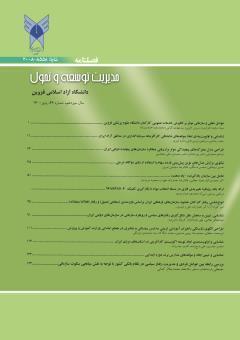Designing the Model of fair tax collection model in Iran
Subject Areas : مدیریتKarim Marahemi 1 , Amir Mohammadzadeh 2 * , Nasar Hamidi 3 , mehdi keirandish 4
1 - PhD student, Department of Public Administration, Qazvin Branch, Islamic Azad University, Qazvin, Iran
2 - Associate Professor, Department of Industrial Management, Qazvin Branch, Islamic Azad University, Qazvin, Iranهیات علمی
3 - Professor, Department of Industrial Management, Qazvin Branch, Islamic Azad University, Qazvin, IranProfessor
4 - Professor, Department of Public Administration, Shahid Sattari University of Aeronautical Sciences and Technology, Tehran, Iran
Keywords: tax, tax fairness, fair tax collection, Meta-synthesis method,
Abstract :
Tax , as the most important source of governments revenue, plays a special role in financing governments. Although some countries, such as Iran, do not pay as much attention to tax revenues as they deserve due to access to alternative benefits such as oil, but they emphasize and acknowledge the essential role of taxes in their budget structure and are looking for ways to increase their potential tax capacities. Despite the efforts made in recent years to develop the country's tax system, the country's tax system is still facing many challenges. One of these challenges is fair tax collection, which plays an important role in taxpayers' tax compliance. The purpose of this article is to provide a model for the fair collection of the country's taxes. Since no model has been presented for the fair collection of taxes in the country, in this article, by analyzing the writings related to the fair tax collection and among the 180 searched sources, 30 reliable sources were selected in this regard, and by using the qualitative approach and the meta-composite method of collection characteristics, tax fairness is presented to provide a basis for designing such a model. By analyzing these sources, 7 concepts and 46 codes for fair tax collection have been obtained.

